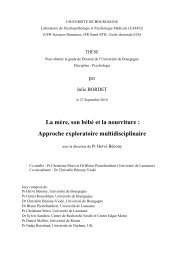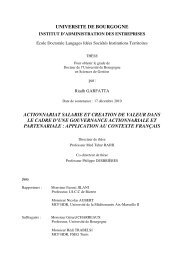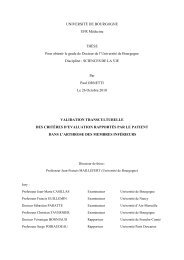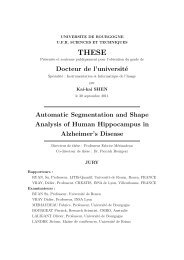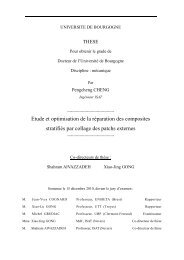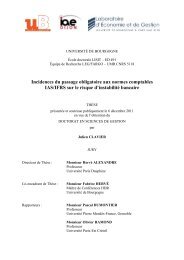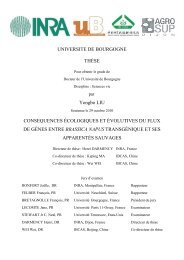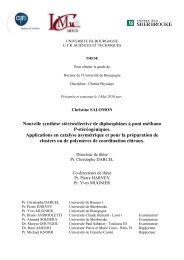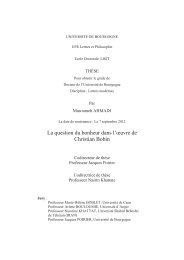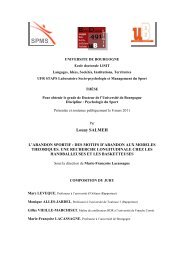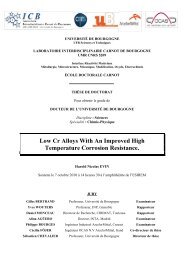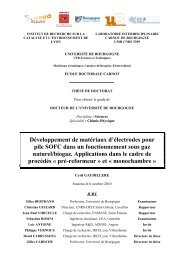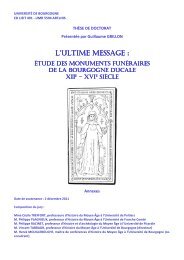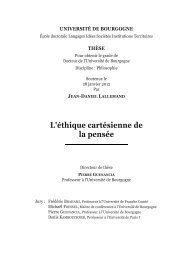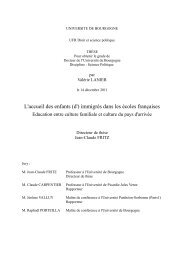Higher education in Asian countries and the role of international ...
Higher education in Asian countries and the role of international ...
Higher education in Asian countries and the role of international ...
Create successful ePaper yourself
Turn your PDF publications into a flip-book with our unique Google optimized e-Paper software.
39<br />
<strong>in</strong>ternational organizations <strong>and</strong> <strong>the</strong> extent <strong>of</strong> <strong>in</strong>ternational cooperation that is possible through<br />
<strong>the</strong>se bodies. There are many branches <strong>of</strong> this school, which are based on <strong>the</strong> realistic thoughts<br />
<strong>and</strong> explore different aspects <strong>of</strong> <strong>the</strong> philosophy <strong>of</strong> creation <strong>and</strong> existence <strong>of</strong> IGOs.<br />
3.4.1.1 Classical realism<br />
Classical realism or human realism ma<strong>in</strong>ta<strong>in</strong>s that states are <strong>the</strong> major <strong>and</strong> significant actors <strong>in</strong><br />
<strong>in</strong>ternational politics <strong>and</strong> every state function as a unified <strong>and</strong> autonomous entity. Political<br />
construction <strong>of</strong> <strong>the</strong> states is <strong>the</strong> reflection <strong>of</strong> human nature. State‟s pursuit for power depends<br />
upon <strong>the</strong> basic nature <strong>of</strong> human be<strong>in</strong>gs who act as power maximizers where ideology <strong>and</strong> o<strong>the</strong>r<br />
tangible <strong>and</strong> <strong>in</strong>tangible factors may also contribute to <strong>the</strong> power <strong>of</strong> a sate <strong>in</strong> an <strong>in</strong>ternational<br />
system. Accord<strong>in</strong>g to realist <strong>the</strong>ory, IGOs have a limited <strong>role</strong> to play <strong>in</strong> challeng<strong>in</strong>g this power<br />
tug war because <strong>the</strong>se bodies cannot change <strong>the</strong> anarchical structure <strong>of</strong> <strong>the</strong> <strong>in</strong>ternational system.<br />
Ra<strong>the</strong>r, IGOs are simply used by powerful states to implement <strong>the</strong>ir own power politics more<br />
effectively <strong>and</strong> to pursue <strong>the</strong>ir self-<strong>in</strong>terest (Morgenthau & Thompson, 1985). In this context <strong>the</strong><br />
<strong>in</strong>stitutionalization, function <strong>and</strong> effectiveness <strong>of</strong> IGOs l<strong>in</strong>ked with <strong>the</strong> existence <strong>of</strong> an authority<br />
that holds great <strong>in</strong>fluential power resources; a legal dom<strong>in</strong>ation <strong>and</strong> force to implement it. In this<br />
regard <strong>the</strong> effectiveness <strong>of</strong> IGOs depends upon <strong>the</strong> active <strong>role</strong> played by key players <strong>and</strong> as well<br />
as <strong>the</strong> rise <strong>and</strong> fall <strong>of</strong> major states.<br />
3.4.1.2 Neo-realism or structural realism<br />
Neo-realism <strong>the</strong>ory took birth <strong>in</strong> post world war era <strong>and</strong> it was fur<strong>the</strong>r developed by Kenneth<br />
Waltz <strong>in</strong> 1970s. This <strong>the</strong>ory assumes <strong>the</strong> premises <strong>of</strong> classical realism but at <strong>the</strong> same time it<br />
attempts more separation <strong>and</strong> segregation from this <strong>the</strong>ory (Gilp<strong>in</strong>, 1981). Accord<strong>in</strong>g to this<br />
<strong>the</strong>ory, states seek to survive with<strong>in</strong> an anarchical system <strong>and</strong> <strong>the</strong> <strong>in</strong>ternational or regional<br />
structure acts as a constra<strong>in</strong>t on state behavior, consequently those states whose outcomes fall<br />
with<strong>in</strong> an expected range, power balanc<strong>in</strong>g, survive <strong>and</strong> progress. In this endeavor, power<br />
balanc<strong>in</strong>g is not <strong>the</strong> aim but is a product <strong>of</strong> <strong>the</strong> aim to survive.<br />
Accord<strong>in</strong>g to <strong>the</strong> neo-realists IGOs are not self-driven actors but <strong>the</strong> anarchical structure <strong>of</strong> <strong>the</strong><br />
<strong>in</strong>ternational system dictates <strong>the</strong> maximization <strong>of</strong> relative <strong>in</strong>fluence <strong>of</strong> great powers; IGOs are<br />
largely <strong>in</strong>effective <strong>and</strong> mean<strong>in</strong>gless actors, which work for great powers or dom<strong>in</strong>ant states only.<br />
Fur<strong>the</strong>rmore dom<strong>in</strong>ant states ensure that o<strong>the</strong>r states or actors do not benefit more from<br />
cooperation <strong>in</strong> <strong>in</strong>ternational organizations than <strong>the</strong>y do <strong>the</strong>mselves because absolute ga<strong>in</strong>s



